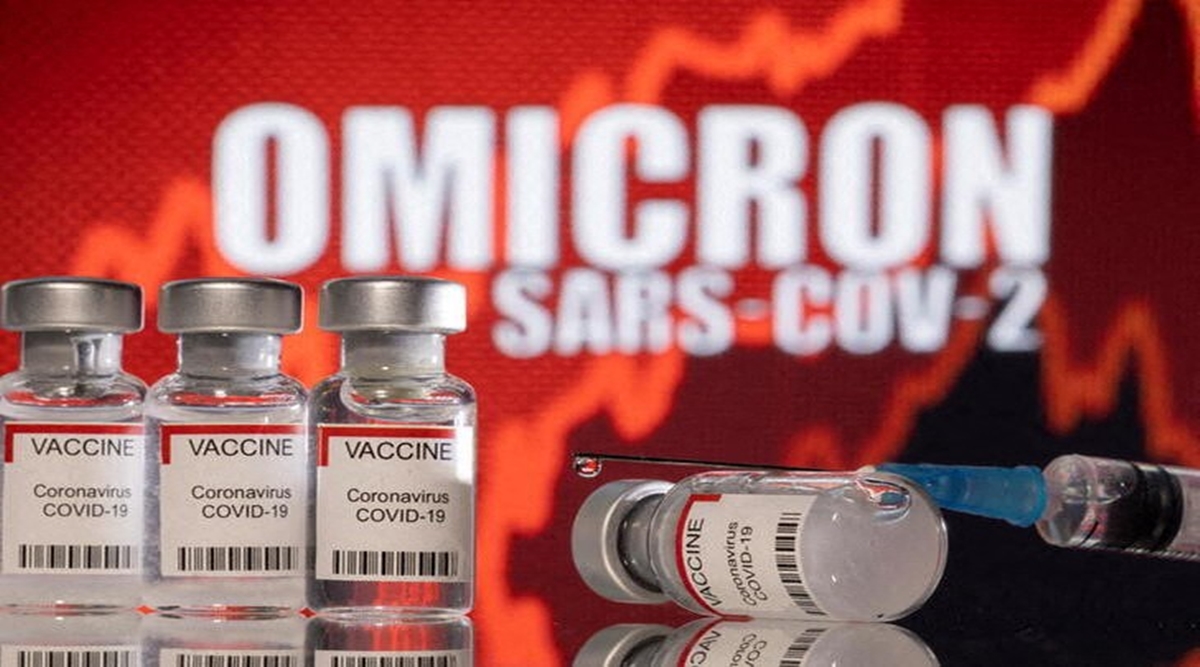Australia's Health Minister Greg Hunt mentioned last week that the term 'fully vaccinated' should be changed to three doses instead of two. He said this because Omicron was able to distinguish the protection provided by two doses of the vaccine, after which a debate has started in most countries about whether two doses of the vaccine are effective or it should be increased to three doses. Let us know how effective the third dose of the vaccine can prove to be.
How effective is the third dose against Omicron?The protection provided by the vaccine against Omicron is reduced for these two reasons.
1- The anti-bodies formed after vaccination start decreasing over time. Therefore, their anti-body level has dropped rapidly without being boosted.
2- The second is that Omicron is able to penetrate the immunity created by the vaccine because its number of mutations is very high. Its spike protein is completely different from that of Delta and it is also different from the original form of the virus.
How different is Omicron from Delta and Beta?Talking about the receptors, there were 2 mutations in delta while 3 in beta. At the same time, there are 15 mutations in Omicron, which work to bind to receptors. As a result, some antibodies produced by the vaccine block the spike protein of the omicron and prevent them from reaching our cells.
How much protection do two doses of vaccine give?This is the reason that two doses of the Kovid vaccine provide only 0 to 10 percent protection against Omicron infection, especially when the second dose is administered after 5 to 6 months. Hence it is not correct to address two doses as fully vaccinated. The main reason why people are getting less protection against the disease is the time taken to take the second dose.
What is the significance of the third dose?The booster dose is effective in boosting the anti-bodies, especially Omicron as some of these anti-bodies provide great protection. It has been seen that after two to four weeks of taking Pfizer and Moderna booster doses, Omicron increases protection by 60-75 percent. But even the third dose protection against Omicron infection drops by 30-40 percent after 15 weeks. So infection is common.
Let us tell you that after taking the Pfizer booster dose, the chances of hospitalization are reduced to about 90 percent, but after 10-14 weeks this chance drops to 75 percent, whereas after taking the modern booster, there is no infection for nine weeks. The probability is 90-95 percent.
(Disclaimer: The content on this site is for informational purposes only, and should not be taken as professional medical advice. Always seek the guidance of your doctor or other health professionals for any questions you may have regarding your health or a medical condition.)

 Vaccine protection against Omicron is reduced for these two reasons. Know how many doses are effective.
Vaccine protection against Omicron is reduced for these two reasons. Know how many doses are effective.









.jpeg)

.jpeg)
.jpeg)
.jpeg)

.jpeg)
.jpeg)
.jpeg)
_(1).jpeg)

_(1)_(1)_(1).jpeg)
.jpeg)
.jpeg)
.jpeg)






